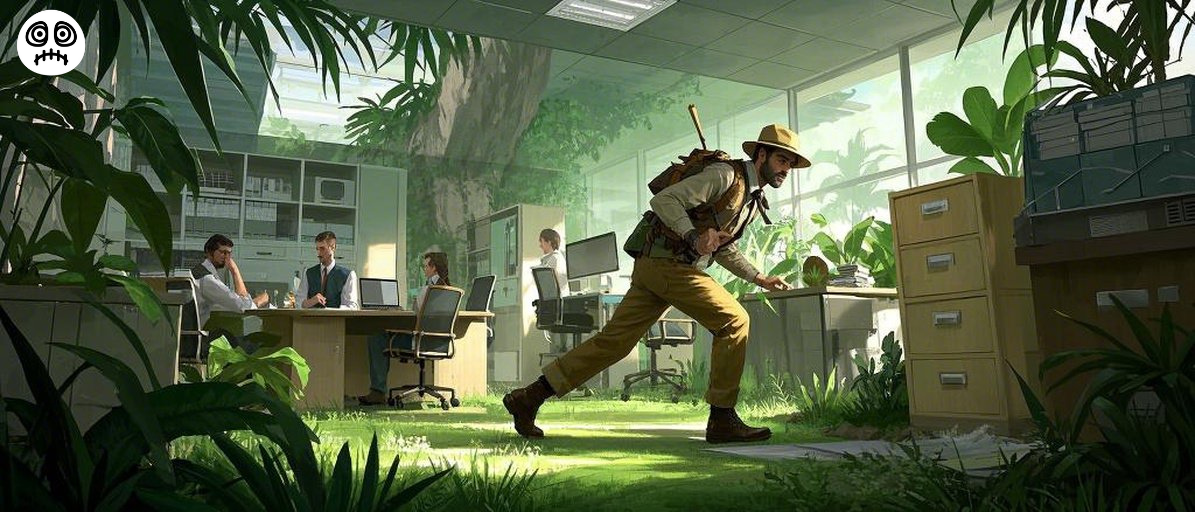Life Lessons From the 9-to-5

What We Really Learn at Work
We spend roughly a third of our adult lives at work. That’s a lot of coffee breaks, awkward elevator small talk, and wondering if that email you just sent sounded too aggressive. But beyond the daily grind, our jobs teach us some pretty valuable life lessons—sometimes the hard way!
The Reality Check Department
Many of us enter the workforce bright-eyed and bushy-tailed, only to have reality smack us in the face like a cold Monday morning. As one seasoned professional put it:
“Companies/leadership don’t care about you and your career….the only person who cares about your career and advancement is yourself.”
Ouch! But there’s wisdom in those words. Taking ownership of your professional growth might be the most important skill you’ll ever develop. Nobody is going to care about your career trajectory as much as you do—and that’s actually empowering when you think about it!
This sentiment is echoed by another straight-shooter who reminds us:
“HR is not your friend.”
The Work-Life Balance Brigade
Perhaps the most repeated lesson from our survey was about keeping perspective on what truly matters:
“It’s just a job. The rest of life is way more important.”
This powerful reminder comes up again and again because it’s so easy to forget when deadlines loom and the pressure’s on. Another respondent elaborated on this theme:
“It’s just a job. Spend time with your family, go to your kids’ games, take that trip you always wanted. You won’t be on your deathbed saying ‘Darn, wish I had worked more.'”
Well said! And when it comes to actually protecting that precious personal time, others offered practical advice:
“Take your days off. Your happiness and mental health is more important. Working more hours to try and impress will just end with you having more of a work load than you can handle. Work hard and do your job well but use your days off. They are there for a reason.”
And for those who needed an even blunter wake-up call:
“Use your PTO. Job love/loyalty won’t pay the bills. If you died, your job would have you replaced before you’re even buried.”
The Effort vs. Reward Committee
One of the hardest lessons many workers learn concerns the relationship between effort and reward:
“Working harder than what they pay you for doesn’t work out well 95% of the time.”
This pairs interestingly with another observation:
“If you do a really good job you get to do everyone else’s job too.”
Ah, the classic reward of more work for good work! It’s a phenomenon many of us have experienced. One respondent puts it in even broader terms:
“That hard work benefits your employer more than you.”
The Social Dynamics Squad
Just when you thought you’d escaped the cafeteria politics of your school days:
“The popularity contest from high school never ends.”
Indeed, workplace social dynamics can feel eerily familiar. But there are strategies for navigating this reality, as one wise worker suggests:
“Say less and listen more.”
Those five simple words might be the most practical social advice for any workplace! Another respondent elaborates on the importance of workplace relationships:
“Soft skills are as important as hard skills, a team of all technically skilled people with no soft skills is miserable, despite what some claim.”
And let’s not forget the critical importance of management:
“Skilled management is way more important than no management, your direct boss will make or break the job.”
The Practical Wisdom Panel
Some of the most valuable advice centered around practical workplace strategies:
“Document everything.”
Those two words could save your career someday! Having a paper trail of important communications and decisions has rescued countless professionals from misunderstandings and worse.
Another practical insight addresses the remote versus in-person debate:
“Learn to take your lumps and learn from them. Also, being present at the worksite will afford you more opportunities than those that work remotely (unfair but true).”
This balanced take acknowledges both the learning process and the current workplace reality, while another respondent offers a similar observation:
“There is still some value to in-person interactions and some exercises are best in person (however, I still think the majority of work should be Work From Home – allowed when digital)”
The Long-Term Perspective Club
Some of the most profound insights came from those who’ve learned to take a longer view:
“Weirdly, my biggest take away has been that no matter where you go, there will be issues. The key is finding the issues that you can live with, build a little reputation, and start working to implement positive change. The right workplace, at least in my experience, will most likely notice, and your work life will generally improve as change takes hold. I guess what I’m saying is that patience goes a long way.”
This thoughtful perspective reminds us that no workplace is perfect, but finding the right fit makes all the difference.
Another respondent reflected on the pattern of expectations throughout life:
“Oh, when you’re in high school everything will be different… nope. Oh, when you’re in college everything will be different… nope. Oh, when you’re in a career, everything will be different… nope. Some things just don’t change. Take the lessons from elementary school and apply them broadly, because just like elementary school, there’s always someone who just isn’t content unless they’re actively trying to mess things up for everyone. Keep your focus, work hard, and advocate for yourself.”
The Fear Factor Fighters
One of the most liberating insights came from someone who learned to put workplace mistakes in perspective:
“I know you can mess something up BAD, but you ain’t going to jail and the worst they can do is fire you, and you’ll find something else. Otherwise just be careful and don’t be SCARED of the work. We are all just pretending we know what the heck we are doing until a decade passes and you got your stuff down pat.”
The Alternative Path Explorers
Some respondents questioned the traditional employment model altogether:
“Working for someone else is for the birds. Be your own boss. It’s much better.”
While entrepreneurship isn’t for everyone, it’s certainly worth considering for those with the right temperament and skills!
Another offered perhaps the most idealistic (if impractical) career advice:
“Try to be born wealthy.”
The Final Word
Perhaps the most profound lesson came from someone who learned the hard way about priorities:
“A well-paying job that drains your soul is not worth it. Your time and your sanity are worth more than money.”
And isn’t that what all these lessons really point to? Work matters, but it’s just one part of a fulfilling life.
The workplace can be challenging, frustrating, and sometimes downright bizarre. But it can also be where we develop resilience, build meaningful connections, and learn about ourselves. The key is to take these lessons and use them to create a work life that supports your whole life—not the other way around.
So whether you’re just starting out or you’re a seasoned professional, remember to advocate for yourself, protect your time, document everything, and most importantly, keep perspective. After all, as so many of our contributors reminded us: it’s just a job!
Now go ahead and use that PTO. You’ve earned it!
______________________________________________________________
Original quotes retrieved from Reddit survey labeled: “What’s the biggest lesson that employment has taught you?”



[…] 50mg viagra cost […]